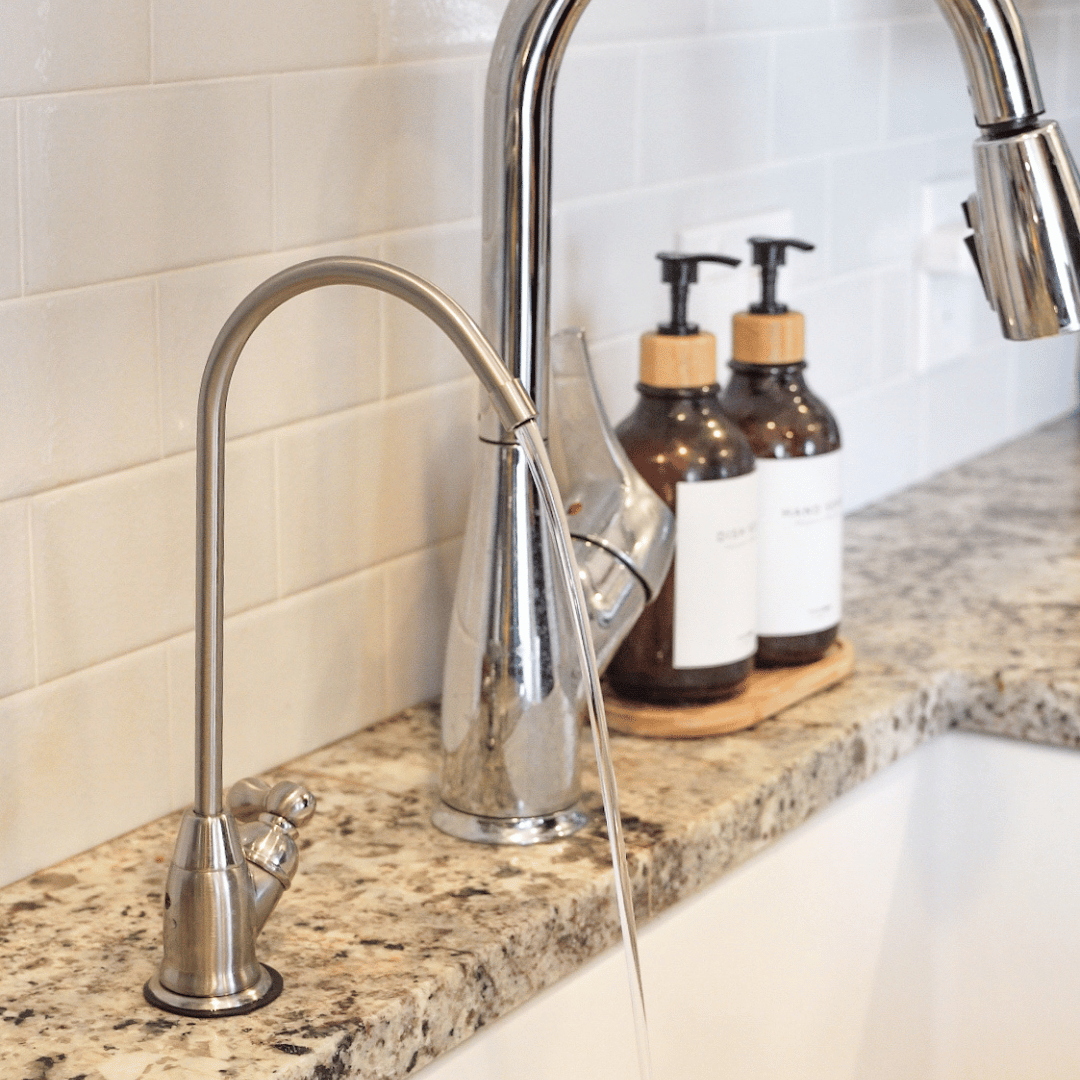WHOLE HOUSE WATER FILTER
Rhino® Max Flow
Maximum-flow whole house water filtration system reduces 97% of chlorine at 2X the flow rate. Lasts 1,000,000 gallons or 10 years.
.png)
Learn about the importance of filtering water and how it can help you improve your health, support the environment, and save money among other benefits.
Water is an essential part of human life. Not only does it hydrate your body and support digestion, but it also helps regulate your body’s temperature and eliminate waste products. In fact, the average person’s body is 60% water! Every cell, tissue, and organ in your body needs water to function, as water aids in transporting nutrients and oxygen to cells, lubricates joints, protects sensitive tissues, and plays a crucial role in maintaining your overall bodily functions.
That’s why you need to make sure the water you consume is clean and safe. Unfortunately, the water that comes out of our taps often contains many contaminants that can impact the taste of your water or even pose serious health risks. These contaminants can include bacteria, viruses, heavy metals, pesticides, and industrial pollutants, all of which can have adverse effects on your health. Filtering your water can help remove these substances, and in our most recent Water Quality Survey, we found that 80% of U.S. adults agree that drinking cleaner, filtered water is important for living a longer and healthier life.
Water filtration is the process of removing or reducing impurities and contaminants from water, making it safer and cleaner for consumption, cooking, and other uses. This essential process can address various impurities including sediments, bacteria, heavy metals, and chemicals. Filtration methods range from physical barriers, such as activated carbon filters that adsorb impurities, to chemical processes like chlorination and ultraviolet treatment that neutralize harmful organisms. Some filtration systems use a combination of these methods to tackle a broad spectrum of contaminants, ensuring the water meets health and taste standards.
Boiling water was once considered sufficient to kill germs and bacteria found in water. However, modern contaminants like pesticides and other chemicals are entering our water supplies and may still remain in the water after boiling. This can potentially lead to illnesses and diseases like cholera, diarrhea, and gastrointestinal infections. As a result, water filtration is more important than ever.
Not only can water filters remove harmful contaminants like arsenic, rust, sediment, lead, mercury, chlorine, iron, scale, and disinfectant byproducts, but they can also ensure your water maintains essential minerals like calcium, magnesium, zinc, and fluoride. However, a water filter won’t just benefit your health. It can also affect the quality of your water, making it taste, look, and smell better.
If you rely on well water, which isn’t tested or treated by any regulatory body, water filtration is an absolute necessity. Even if you have city-treated water coming from your tap, it can still be contaminated. Not only can some contaminants slip through the treatment process, but the water may even pick up additional contaminants from the pipes leading to and within your home. What’s more, if your city uses a chemical-based water filtration technique, your water may still contain traces of those chemicals.
Additionally, even if your tap water is below the legal maximum level of allowable contaminants, that doesn’t necessarily mean your water is 100% safe. Over time, we’ve seen new research come out that leads to stricter standards about which contaminants are regulated and at what levels.

Filtering water in your home offers several benefits, including:
With chemicals, sediments, and pesticides in our water supply, having a filter in your home can help ensure that you have access to clean water. Since water quality directly impacts your health, the taste of your food and beverages, the longevity of your clothes and household appliances, and more — investing in a high-quality water filter can pay off in countless ways.
To enhance the water quality in your home, Aquasana offers a wide range of water filtration systems designed to meet various needs and preferences. Whether you're looking for under sink filters or whole house systems, Aquasana has the right option for your home.
Maximum-flow whole house water filtration system reduces 97% of chlorine at 2X the flow rate. Lasts 1,000,000 gallons or 10 years.
.png)